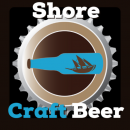Brewing increasingly is becoming an economic engine for Wicomico County. With the passage of the “EVO” bill by the state legislature, breweries will be able to expand even more driving revenue and tourism in the area. Recently, County Executive Bob Culver joined Tall Tales Brewing Company owner Jason Hearn for the ground breaking ceremony that signals another leap in Wicomico County beer.
State Del. Carl Anderton, who has been credited with working to push the bill through has been a Tall Tales supporter since long before he was elected. While at its core beer, and enjoying it at local breweries, is a cultural phenomenon, it also is an economic one. As one of the fastest-growing small business sectors in the country, community leaders can ignore craft brewing at their own peril or support it as a means to a greater economic end and a public good.
Tall Tales was approved for an expansion project that will enable that brewery to quadruple in size over the next few months. Although it won’t have a huge effect on this year’s production levels for the three-year-old brewery, for next year and the years following, it could mean big business for both the region and the county.
Wicomico County beer goes big
Tall Tales head brewer Jimmy Sharp discusses land management practices with Jason Hearn at the groundbreaking.
Locally places like Tall Tales and Evolution attract tourists who used to spend their entire vacations at the beaches. Craft beer is an engine for destination tourism.
“People like to go to the brewery and have the brewery experience,” Hearn said. “There are a lot of tourists who come here just for the breweries.”
For Tall Tales, the expansion is about being able to meet the growing demand for their beer by people who aren’t always able to just drive right up. That means not only more bottles sold, but also people to do the stocking and the bottling.
“Anytime a local business is able to expand, it’s good for Wicomico County,” said Culver. “We’re looking forward to the expansion and we’re always looking for new jobs.”
Hearn said the jobs the expansion will create will be at multiple levels of income.
“We’ll definitely be adding jobs and revenue for the county,” he said. Last year, craft beer added nearly $150 million to the state’s economy from alcohol taxes alone.
For Tall Tales, adding brewery revenue is only the beginning of their plans for the coming season. The restaurant also recently was approved for a liquor license, which will allow the brewery to sell more than only their beer. As a restaurant and banquet facility, no matter how great the beer was, clientele was limited to beer drinkers. By being able to offer diners wine and mixed drinks, the restaurant will finally be able to thrive as much as the brewery that supports it.
Do you take this beer?
“What I’m excited about i that many people who are not craft beer drinkers will have some other option,” said Beth Hearn, Tall Tales general manager. “We do a lot of event, now we’ll be able to do even more.”
Making beer more accessible is a multivalent process. Many of the newer breweries have learned to split the difference, ensuring that they have solid, easy “entry level” beers. But, increasingly, breweries and brewpubs alike are about the space and the experience as much as they are the quality of the beer provided. Ensuring that even non-beer drinkers can enjoy a day at the brewery, can only improve the overall picture.
For towns all over the Peninsula (and, really, the country) the local brewery is fast returning to its place as a town center. A place for celebration, camaraderie and making connections to the larger culture.
Tall Tales does a healthy banquet business on its picturesque grounds. Not being able to offer wine or liquor, for a wedding, say, limited what they can do. Now they are only limited by what they are willing to do, which is just fine with them.




